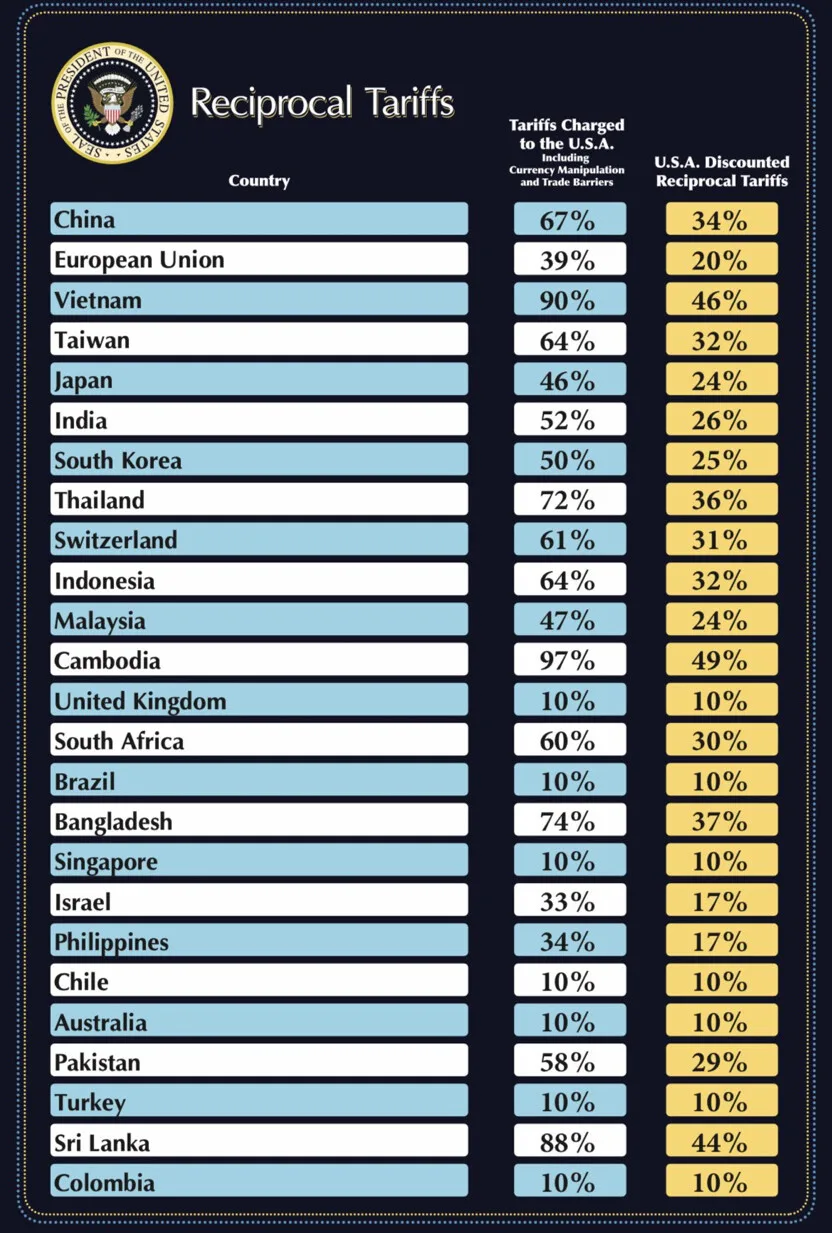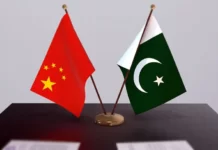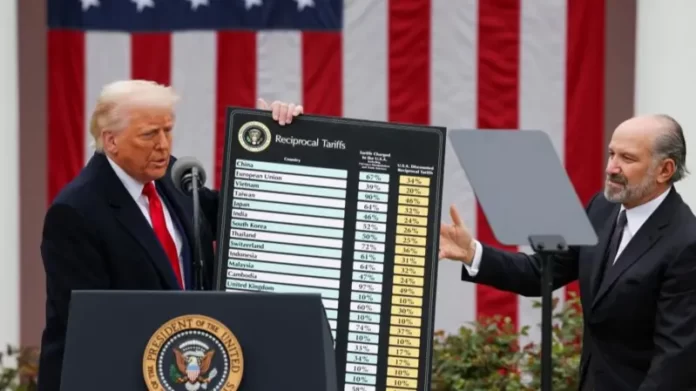President Donald Trump announced a significant new trade plan on Wednesday, imposing sweeping reciprocal tariffs on goods from countries around the world, including Pakistan.
According to media reports, under the new plan, Pakistan will face a 29% tariff, as the U.S. president emphasized that the South Asian country imposes a 58% tariff on U.S. goods.
The US is set to implement a baseline 10% tariff on all countries starting April 5, 2025. However, countries with higher tariffs on US goods or other trade barriers are subject to additional tariffs. Pakistan’s 29% tariff is one of the higher rates, reflecting its trade practices and policies that the Trump administration claims disadvantage US businesses.

Other countries affected by the new tariffs include China, which faces a rate of 34%, and Vietnam, which will face a 46% tariff. The European Union will see a 20% tariff on its goods, and countries such as Japan, South Korea, and India will also face significant increases in tariff rates. The list also includes countries like Thailand (36%), South Africa (30%), and Malaysia (24%), among others.
While the new tariffs are set to affect a wide range of countries, some nations, including Canada and Mexico, are exempt from the new reciprocal tariff scheme, as they will continue to be managed under previously established trade frameworks.
Furthermore, the U.S. will impose a 25% tariff on all foreign-made automobiles, a move that is expected to have significant implications for the global automotive industry.
The new tariff plan is part of a broader US strategy to correct perceived trade imbalances and reduce barriers to American goods. The administration’s goal is to address “unfair” tariffs and non-tariff barriers that restrict U.S. exports, aiming to create a more level playing field in global trade.
As part of the new trade measures, Trump’s administration has also set out specific tariff rates for approximately 60 countries that have been identified as “worst offenders” in terms of trade practices. These countries, which include China, Vietnam, and the European Union, will see tariffs of up to 90% based on the level of trade barriers they impose on U.S. goods.
The severity of Trump’s tariffs has taken many economic analysts by surprise.
Oxford Economics said in an initial assessment that tariff rates were set to rise to levels not seen since the 1930s, “exceeding what we laid out in our full-blown Trump scenario.”
“Even if tariffs are negotiated lower in the coming days, the assumptions in the March baseline are too optimistic given Wednesday’s announcement,” said Ryan Sweet, chief US economist at Oxford Economics.
Trump’s tariff has sent shockwaves through global markets as countries adjust to the new trade dynamics, and some nations may seek to renegotiate or challenge the tariffs through international trade bodies.
Global markets have been whiplashed since Trump took office and kept up a stream of rhetoric that threatened to unleash a global trade war. Trump’s new levies crystallized those fears.
In the United States, stocks future fell as Trump spoke, with S&P 500 E-minis down 3.5%. In currencies, the dollar fell 0.9% against the yen at 148 yen, while the Mexican peso was about 0.4% lower. Prices of safe-haven assets such as gold and Treasury rose.
European Union executive head Ursula von der Leyen has called the tariffs a “major blow to the world economy”.
“The global economy will massively suffer, uncertainty will spiral and trigger the rise of further protectionism,” von der Leyen, the president of the EU Commission, said in an address from Samarkand, Uzbekistan ahead of an EU-Central Asia partnership summit.
“The consequences will be dire for millions of people around the globe – also for the most vulnerable countries, which are now subject to some of the highest US tariffs.”
South Korea’s acting President Han Duck-soo has directed officials to draw up emergency support measures for businesses that will be affected by the tariffs.























